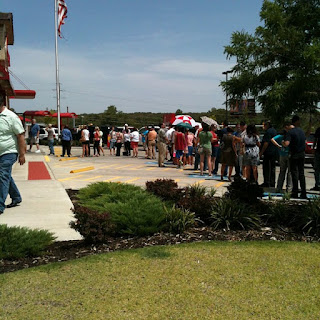Yesterday we started looking at Psalm 138:1 – 3. We pick up to day on the second half of verse 1, “I will sing praises to Thee before the Gods.
This can be taken at least two ways; first, in the sight of other gods; second, priority, that is I place my singing praise to God before singing praise to other gods.
My first response was that it is the second. One of my friends sent me an email yesterday expressing the same idea. We need to place our worship of the Lord before our jobs, our recreation, our families, all of the things that vie for our attention. But, as I think about this, perhaps there is an element of the first in there as well. The other “gods” need to see me placing the Lord before them.
I got an email yesterday reporting from recent Barna survey that five times more women chose, “being a mother or parent” than chose “being a follower of Christ,” as their most important role in life. In Numbers 14:3, the men of Israel placed the welfare of their families before trusting God. We know how well that turned out for them.
This can be taken at least two ways; first, in the sight of other gods; second, priority, that is I place my singing praise to God before singing praise to other gods.
My first response was that it is the second. One of my friends sent me an email yesterday expressing the same idea. We need to place our worship of the Lord before our jobs, our recreation, our families, all of the things that vie for our attention. But, as I think about this, perhaps there is an element of the first in there as well. The other “gods” need to see me placing the Lord before them.
I got an email yesterday reporting from recent Barna survey that five times more women chose, “being a mother or parent” than chose “being a follower of Christ,” as their most important role in life. In Numbers 14:3, the men of Israel placed the welfare of their families before trusting God. We know how well that turned out for them.






























